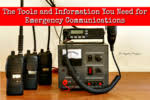
Breaking News
 2 Hours of Retro Sci-Fi Christmas Songs | Atomic-Age Christmas at a Snowy Ski Resort
2 Hours of Retro Sci-Fi Christmas Songs | Atomic-Age Christmas at a Snowy Ski Resort
 Alternative Ways to Buy Farmland
Alternative Ways to Buy Farmland
 LED lights are DEVASTATING our bodies, here's why | Redacted w Clayton Morris
LED lights are DEVASTATING our bodies, here's why | Redacted w Clayton Morris
 How My Youtube Channel Makes Money
How My Youtube Channel Makes Money
Top Tech News
 Travel gadget promises to dry and iron your clothes – totally hands-free
Travel gadget promises to dry and iron your clothes – totally hands-free
 Perfect Aircrete, Kitchen Ingredients.
Perfect Aircrete, Kitchen Ingredients.
 Futuristic pixel-raising display lets you feel what's onscreen
Futuristic pixel-raising display lets you feel what's onscreen
 Cutting-Edge Facility Generates Pure Water and Hydrogen Fuel from Seawater for Mere Pennies
Cutting-Edge Facility Generates Pure Water and Hydrogen Fuel from Seawater for Mere Pennies
 This tiny dev board is packed with features for ambitious makers
This tiny dev board is packed with features for ambitious makers
 Scientists Discover Gel to Regrow Tooth Enamel
Scientists Discover Gel to Regrow Tooth Enamel
 Vitamin C and Dandelion Root Killing Cancer Cells -- as Former CDC Director Calls for COVID-19...
Vitamin C and Dandelion Root Killing Cancer Cells -- as Former CDC Director Calls for COVID-19...
 Galactic Brain: US firm plans space-based data centers, power grid to challenge China
Galactic Brain: US firm plans space-based data centers, power grid to challenge China
 A microbial cleanup for glyphosate just earned a patent. Here's why that matters
A microbial cleanup for glyphosate just earned a patent. Here's why that matters
 Japan Breaks Internet Speed Record with 5 Million Times Faster Data Transfer
Japan Breaks Internet Speed Record with 5 Million Times Faster Data Transfer
The Tools and Information Preppers Need for Emergency Communications

In the role of Information Specialist of a prepper group you may or may not also be the Communications Specialist (radio operator) of the group. Either way, you will likely have input as to the tools and information should be gathered for emergency communications means.
During a disaster, you need to stay abreast of the events going on around you. In a weather emergency, such as a hurricane, tornado watch or warning, or winter storm, you need an NOAA weather radio or a radio capable of receiving NOAA weather broadcasts.
In addition, you should have an AM and FM radio to pick up local stations for news and additional weather reports. You may also need a radio to communicate your need for help. In an SHTF situation, you could need two-way radios for self-protection against possible bands of looters in your area. In this scenario, you would use two-way radios for tactical communications to protect yourself, your family, and your neighbors. In addition, you will need to know what is going on in the rest of the country and world. You need to know if and/or when help is coming.
Your local radio and TV stations may or may not be operating. Your satellite receiver may not be working or the satellite itself may not be working, buy you need to be prepared in case they are working. If your power is out, which it likely will be in a SHTF situation, you will need batteries charged by solar power.
Many amateur radios and all short wave radios can listen to short wave broadcasts from both the U. S. and the world. Here is a List of Short Wave Radio Broadcasters.
Why listen for news?
You need to know exactly what disaster has happened, just how bad is it, how extensive the damage is, and whether danger coming toward you or not. Will there be additional disasters and if so what kind and when? Do you need to evacuate, when and why and what will you need most?
Once you buy a radio you need to set it up with the correct type of antenna and use it. You need to learn what all the buttons, switches and dials are for. Operating your radio is a skill just like all other disaster preparedness skills, and you need to practice.
You need to know what stations on what frequencies and what time of day (in your time zone) the stations will be operating and when news broadcasts will be. This includes AM stations, FM stations, and shortwave stations. As enjoyable as music is you really can't afford to use up your battery power listening to music.



